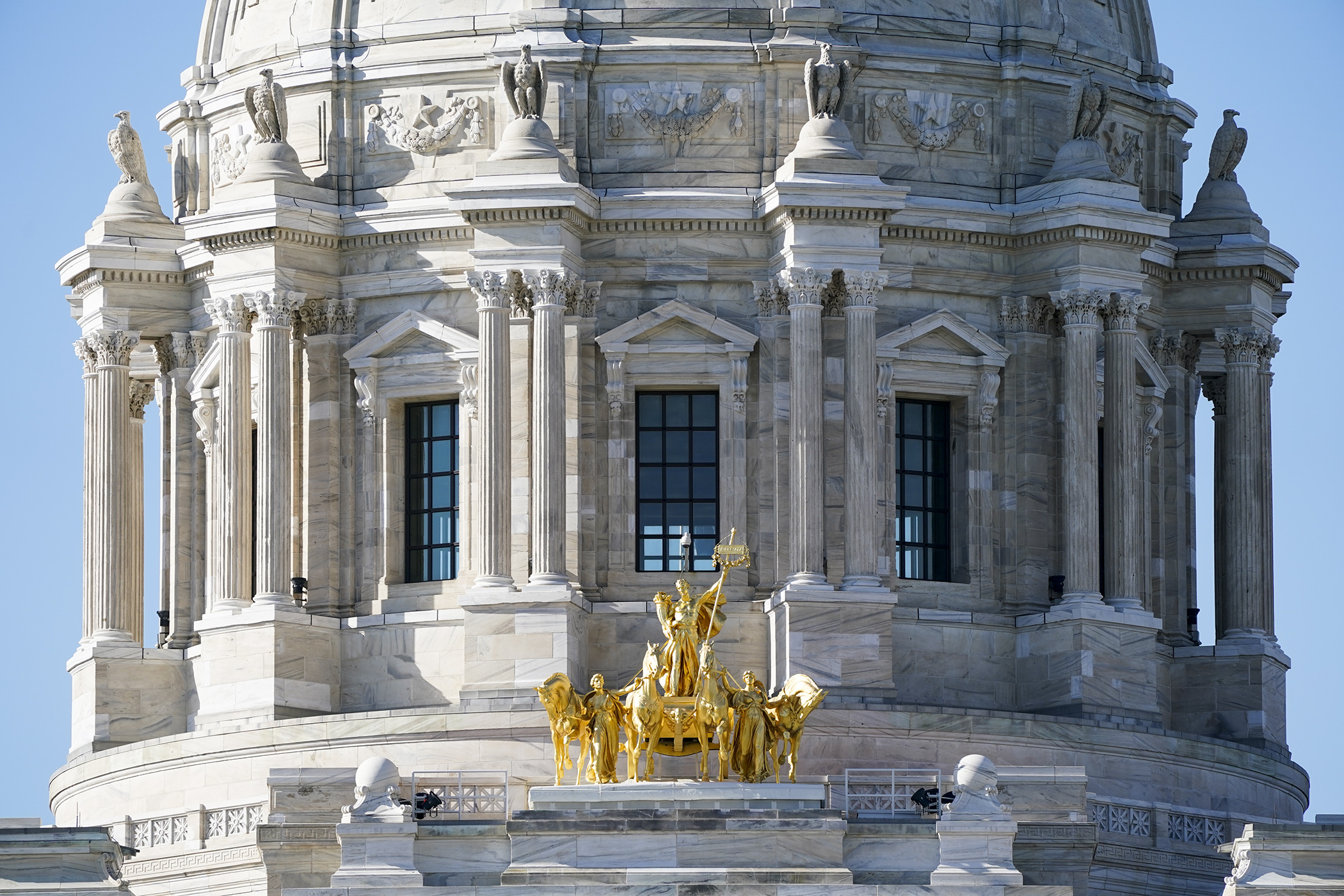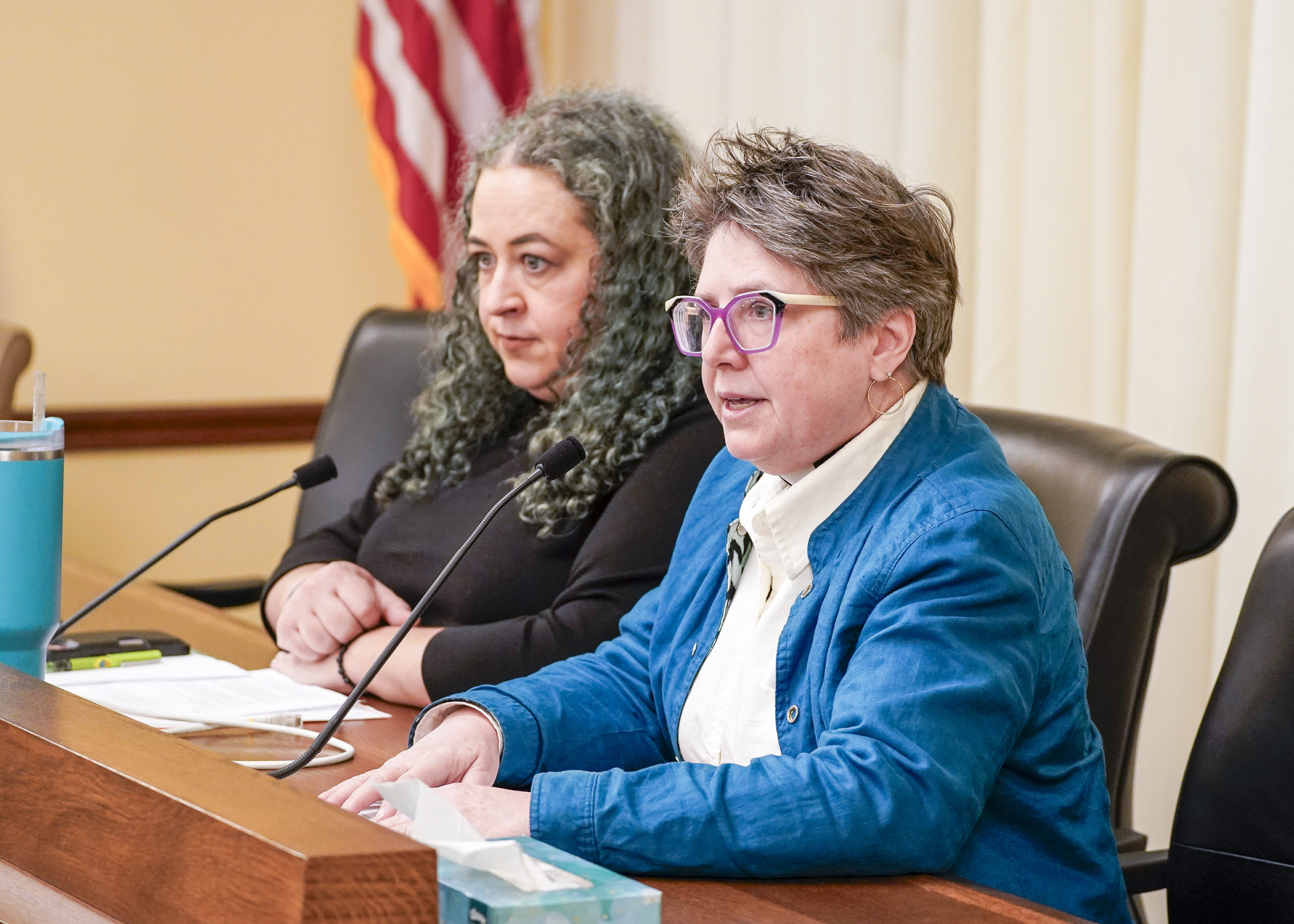House lawmakers eye tax on social media companies for collecting Minnesotans' data

When looking at the business model for companies specializing in social media, it might be helpful to steer away from the idea that you’re a “customer” in any conventional sense. Actually, you are more the product.
Such companies make most of their money not by serving you, but rather by serving you up to others, selling what information they can collect on you.
Should the state get a piece of such transactions? Rep. Aisha Gomez (DFL-Mpls) thinks so. That’s why she’s sponsoring HF3117 that would create an excise tax on some businesses that operate social media platforms. The idea is that such companies would have to pay a tax to the state based upon how many Minnesotans use their social media sites.
 The Rev. Juli Thompson from St. Stephen Lutheran Church in White Bear Lake testifies April 9 before the House Taxes Committee for a bill sponsored by Rep. Aisha Gomez, left, to tax certain social media platform businesses. (Photo by Andrew VonBank)
The Rev. Juli Thompson from St. Stephen Lutheran Church in White Bear Lake testifies April 9 before the House Taxes Committee for a bill sponsored by Rep. Aisha Gomez, left, to tax certain social media platform businesses. (Photo by Andrew VonBank)On Wednesday, the House Taxes Committee laid the bill over, as amended, for possible omnibus bill inclusion.
“Like any tool, social media can be used for good or for ill,” Gomez said, going on to speak of bullying, the impact on children’s self-image and the spreading of misinformation.
“And nobody is providing these ostensibly free services out of the kindness of their little billionaire hearts,” she continued. “They’re doing it because they’re making lots of money doing it. These companies generate billions of dollars in revenue through ad sales, yes, but increasingly through data mining. Through tracking every single thing that each of us and our children are doing when we’re on the internet.”
The excise tax would be based on the number of Minnesota resident consumers on which a company collects consumer data. The tax would be imposed at graduated rates between 10 and 50 cents per consumer per month based on the number of state users in a month the company collects data.
The Revenue Department estimates that the bill’s tax changes would increase the state’s General Fund by $45.5 million in fiscal year 2026, climbing to $92.7 million in fiscal year 2027. It also estimates that, for fiscal year 2026, 14 social media platforms would be subject to the tax.
Testifiers and committee members were divided on the bill’s merits, some praising it as an innovative revenue raiser that addresses a fairly new and under-regulated industry, others saying that it does nothing to confront the issues of bullying and data mining.
“To me, this is just a ridiculous bill,” said Rep. Drew Roach (R-Farmington). “We have private users, and they know that their data is being mined. This is part of the user agreement that they have when they use these apps. … The government should not be the beneficiary of a problem.”
“I think that we will look back at this time the way that, right now, we look back at tobacco in the 1950s and ‘60s,” said Rep. Zack Stephenson (DFL-Coon Rapids). “This is very much a public health issue. Social media is linked to all sorts of terrible mental health outcomes: Depression, anxiety, loneliness, self-harm, eating disorders, suicidal ideation. And these companies have almost no guardrails around them at all.”
Related Articles
Search Session Daily
Advanced Search OptionsPriority Dailies
Legislative leaders set 2026 committee deadlines
By Lisa Kaczke Legislative leaders on Tuesday officially set the timeline for getting bills through the committee process during the upcoming 2026 session.
Here are the three deadlines for...
Legislative leaders on Tuesday officially set the timeline for getting bills through the committee process during the upcoming 2026 session.
Here are the three deadlines for...